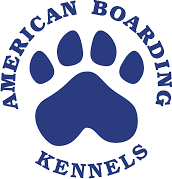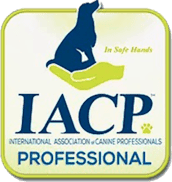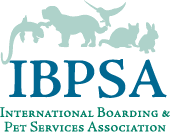CANINE FLU
BECAUSE YOUR PET IS OUR FAMILY TOO…
Though we no longer require the Influenza Vaccine, at Bark-A-Bout we stand by a strict exit protocol for any dog that shows ANY symptoms of upper-respiratory issues. A dog that displays any upper-respiratory illness will be immediately isolated and arrangements made to leave our facility. Our dedicated staff is rigorously cleaning and continuing all precautionary measures to keep your pet healthy. As always, your pet’s well-being is our first priority, and we thank you for your vigilance and cooperation. Upon returning your dog to their normal routine, we highly encourage you to add all-natural immune-boosting supplements to their diet. Dr. Sheppard’s Alternative Animal Care office offers a wide array of supplements that work wonderfully at boosting your pet’s immune system naturally.
.
BARK-A-BOUTS STRICT EXIT POLICY :
For pets exhibiting ANY form of respiratory illness such as: pneumonia, kennel cough, influenza, etc., a mandatory 4-week recovery period is required prior to returning to Bark-A-Bout.
HOW IS BARK-A-BOUT BEING PROACTIVE?
Our dedicated staff continues to give diligent effort to rigorous cleaning regimens. This includes wiping down all surfaces with veterinary-approved disinfectant, including: doors, walls, gates, toys, bedding, floor, etc.
- Clean air is being circulated by our medical-grade air filtration system
- Antimicrobial diffusers disperse therapeutic immune-stimulating essential oils throughout our facility which works to combat airborne pathogens.
- All hotel guests are receiving complimentary immune booster supplements added to their meals.
.
IF YOUR PET HAS THESE SYMPTOMS TAKE THEM TO YOUR VETERINARIAN IMMEDIATELY!

WHAT YOU NEED TO KNOW:
SYMPTOMS:
20% of dogs who contract the canine flu won’t show any symptoms. Some dogs are more severely affected and exhibit clinical signs of pneumonia, such as a high-grade fever (104 to 106 degrees) and increased respiratory rate and effort. Although most dogs recover without incident, deaths due to the Canine Flu have been reported. Most dogs exhibit a cough that persists for 10 to 21 days, despite treatment with antibiotics and cough suppressants, and typically fully recover within 2-3 weeks. There are no antibiotics that can kill the Canine Influenza virus. It is up to the dog’s body to do the work and recover. As a result, much of the treatment for Canine Flu consists of supportive care designed to strengthen the immune system and help your pet recover faster. However, antibiotics will be used to treat dogs who contract a secondary infection or show signs of yellow/green nasal discharge, or extreme coughing, indicating pneumonia which can potentially be life-threatening.
The Canine Flu has an incubation period of 1 to 5 days, with clinical signs in most cases appearing 2 to 3 days after exposure. Dogs infected with the Canine Flu may start showing respiratory signs between 2 and 8 days after infection. Dogs are most contagious during the 1-5 day incubation period and shed the virus even though they are not showing signs of illness.
Once contact is made with a carrier, it is almost certain the virus will transfer. Dog Flu can pass from dog to dog or dog to cat through direct physical contact or from virus particles in the air due to a cough, sneeze, panting or shedding fur. It can also be spread through objects that were touched by infected dogs, like toys, water bowls, leashes/harnesses and bedding. This makes ongoing proper disinfection imperative.
The canine flu cannot be diagnosed solely by clinical signs (coughing, sneezing, and nasal discharge), because these symptoms are present with other canine respiratory illnesses like bordatella (kennel cough). Your vet must perform specific tests aimed to confirm Canine Influenza.
During illness and recovery, ALL dogs and cats within the household should be isolated and quarantined for 4+ weeks, preferably in an area with a separate air supply. It is imperative during that 4+ weeks to keep ALL of your household pets away from public activities where other dogs or cats are present, to avoid infecting other animals.
WAYS TO KEEP YOUR PET SAFE:
BOOST YOUR PET’S IMMUNE SYSTEM WITH ALL-NATURAL IMMUNE BOOSTING SUPPLEMENTS:
During this time, for all of our overnight hotel guests, Bark-A-Bout is offering all-natural immune boosting supplements to be added to your pet’s food FREE of charge. Immune boosting supplements are very important, as stress or changes in environment can weaken your pet’s immune system. Stop into Dr. Sheppard’s Alternative Animal Care office and purchase a bottle of all-natural immune boosting “Congaplex”, in 90 count capsules ($23) or 150 count capsules ($33).
H3N8 AND H3N2 VACCINE
Canine flu vaccines are available for both H3N8 and H3N2 canine influenza, or a bivalent vaccine (combo of both strains). Vaccination does not ensure your pet won’t contract the canine flu, however it may reduce the likelihood of onset, severity and duration of the flu. The full effect of the vaccine takes effect 24 days following the initial application.
*There are currently no canine influenza vaccines approved for use in cats. Consult your veterinarian to discuss if vaccination is appropriate for you pet.
It is important to increase the body’s natural defenses to effectively fight off pathogens. In addition to clean circulating air by our medical-grade air filtration system, we diffuse antimicrobial, immune-stimulating essential oils throughout our facility, which you can also do at home to improve your pet’s health and boost immunity.
There is no “season” for canine flu, and infections can occur ANY time of year. The Canine Flu may live in the environment for approximately 2 days, be viable on clothing for up to 24 hours and live on hands for 12 hours. In veterinary, boarding and shelter facilities, the canine flu virus appears to be killed on surfaces by disinfectants commonly used, and by air sanitization systems. -Wipe down all surfaces with veterinary-approved disinfectant (doors, walls, gates, toys, bedding, floor, etc).- Staff must wash hands with anti-bacterial soap frequently throughout the day.
– Food and water bowls are washed daily with veterinary approved products.
– Clean, circulating air flow; Bark-A-Bout has a medical-grade air filtration system.
– We diffuse therapeutic essential oils that combat airborne pathogens.
OUR PLEDGE TO YOUR PET:
Each of our Bark-A-Bout staff pledges to do everything within our power to keep your pet happy and healthy during their time with us. We find it important to inform you of this Influenza occurrence so you can take proper precautionary measures at home as well. We care deeply for each and every guest that comes through our doors and it is our top priority to give your pet the best care possible.For questions regarding the Canine Flu, we strongly advise you to call your veterinarian to learn the best ways to protect your pet.





